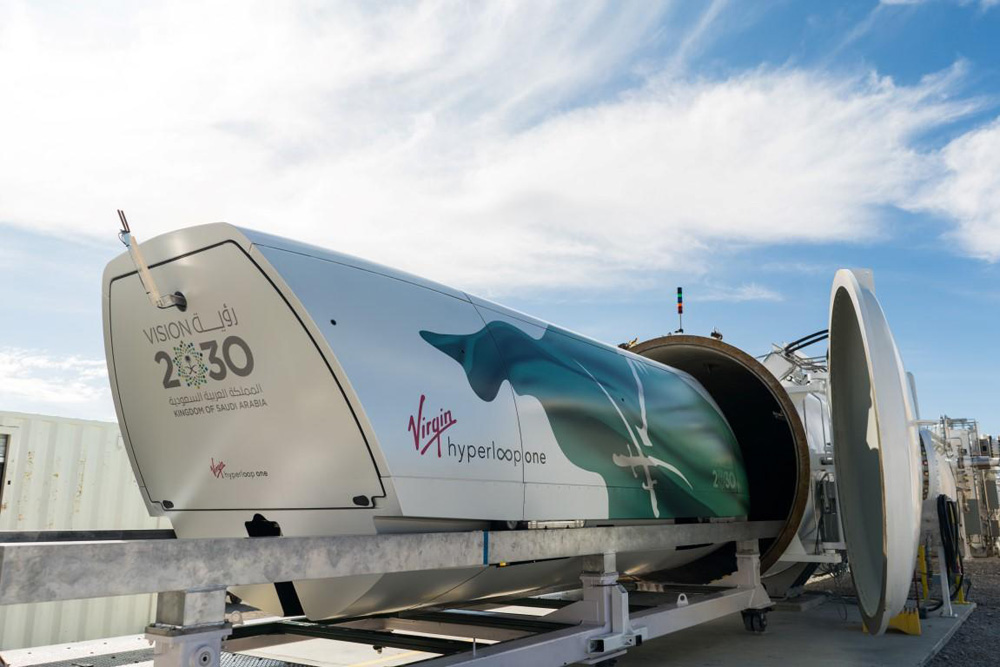
The key goals and targets of Vision 2030 include the modernization of cities across the Kingdom and, in order to achieve this, Saudi Arabia understands that, first and foremost, it will need to better connect its cities with one another – and others in the region – and power them in a way that has never been utilized before.
That is why earlier this month, Saudi Arabia announced its plans to build the Hyperloop, a massive, high-speed, pneumatic transit system that will travel between several cities in Saudi Arabia and the United Arab Emirates, the main ones being Jeddah, Riyadh, Dubai, and Abu Dhabi.

This transportation system, which is being built by Virgin Hyperloop One (a strategic partnership between two companies – Virgin Group and Hyperloop One) is still in its testing phase but news sources claim that once completed it could cut travel time to mere minutes. For instance, travelling between Riyadh and Jeddah will go from 10 hours down to 76 minutes, while Riyadh to Abu Dhabi, which currently takes over 8.5 hours, will soon take just 48 minutes.
According to Arabian Business, Crown Prince Mohammed Bin Salman visited the Virgin Galactic base in the Mojave Desert of California during his tour of the United States earlier this year. There he met with Sir Richard Branson, chairman of Virgin Hyperloop One, the company developing the futuristic concept inspired by renowned entrepreneur and CEO of Tesla, Elon Musk.
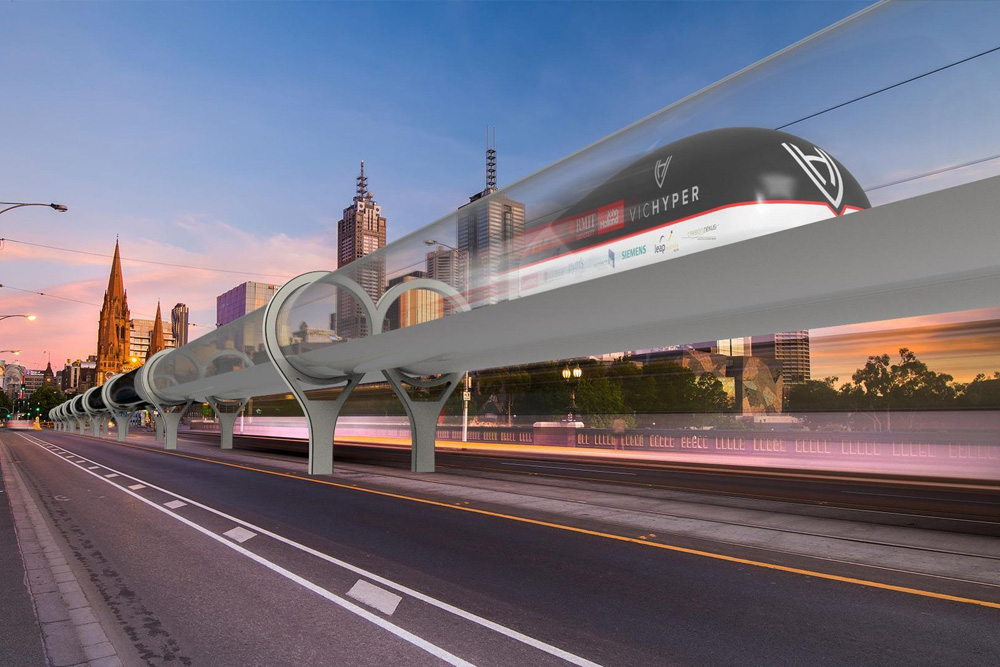
“Hyperloop is the catalyst to enable all fourth-generation technologies to flourish in the kingdom while creating a vibrant society and thriving economy through visionary cities and high-tech clusters,” the Prince said in a statement through Virgin Hyperloop One.
For many, the main question has been: how is the Hyperloop different than any high-speed train? As explained in The National, the concept of the Hyperloop, which was unveiled in August 2013 by Musk, uses pods riding on magnetic levitation systems that can shunt people and cargo at speeds of up to 700 miles per hour through an airless tube that works like a vacuum. The vehicle floats above the track using magnetic levitation and glides at airline speeds for long distances due to ultra-low aerodynamic drag.
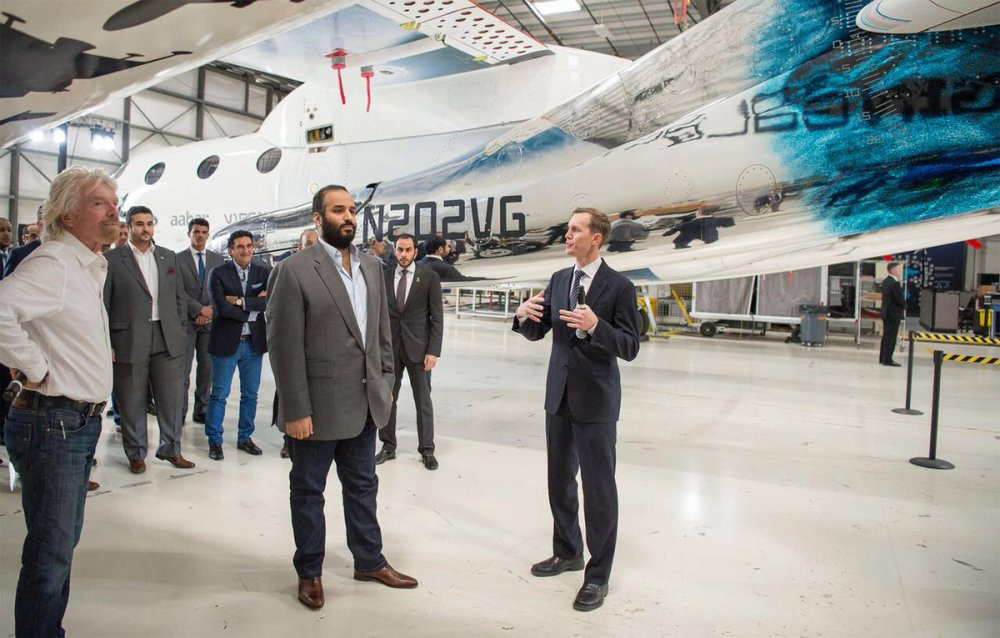
In addition, according to the project website, there are in fact four key differences between the Hyperloop and current high-speed trains today:
− The Hyperloop is faster, as in two to three times faster than the fastest high-speed rail.
− It is on-demand and direct. Trains follow a schedule and typically have multiple stops. Hyperloop leaves when you are ready to go, and pods can depart up to several times per minute and can transport passengers and cargo direct to their destination with no stops along the way.
− It is environmentally friendly, with a smaller civil engineering footprint, more efficient energy consumption and no direct emissions or noise.
− And it is less expensive. High-speed rail and maglev trains require power along the entire track. As a result, the track costs more to build and operate.

With specific regards to how the Hyperloop will be powered, the website states that the system will be fully autonomous and enclosed, eliminating pilot error and weather hazards. In addition, the system will be able to draw power from whichever energy sources are available along the route. If that means solar and wind, then the entire system is 100 percent carbon free.

As part of the Hyperloop project, the Crown Prince also developed an agreement between the Kingdom’s non-profit MiSK Foundation (which he established in 2011) and Virgin Hyperloop One to create an internship program specifically for Saudi engineering students. According to Saudi Gazette, the program is designed for young leaders in the engineering field to develop their abilities through a comprehensive learning experience at Virgin Hyperloop, allowing them to come to the United States from June 25 to August 31, 2018 and work alongside some of the world’s brightest engineers.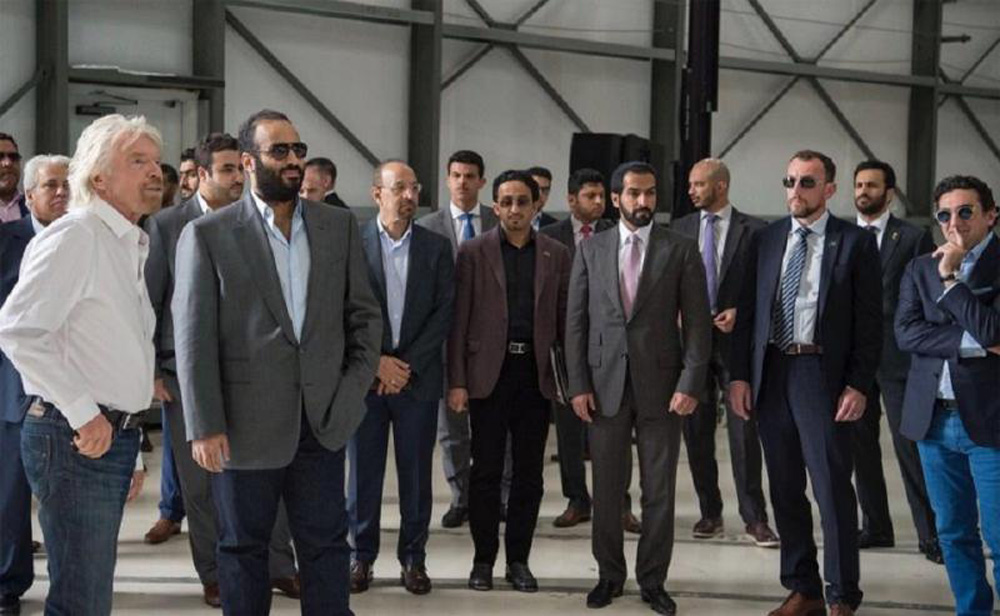
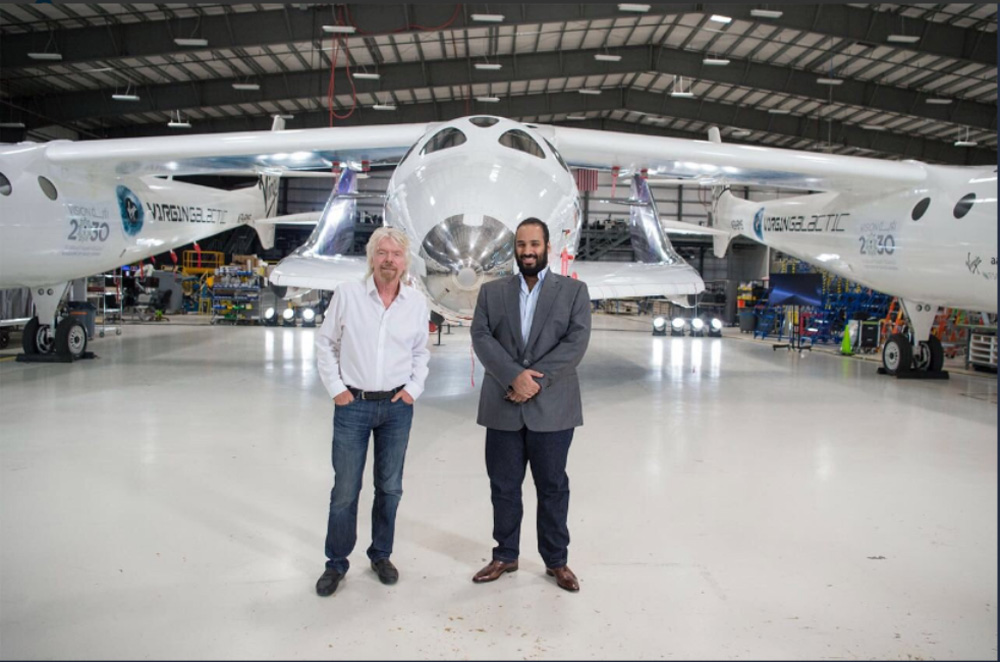
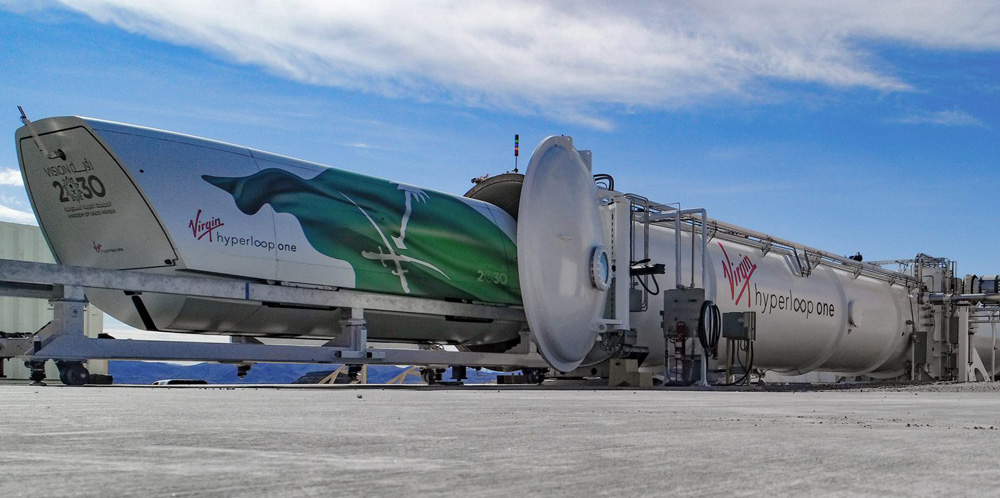
Josh Giegel, co-founder and chief technology officer at Virgin Hyperloop One was quoted in February by the news site saying, “We are delighted to build upon our partnership with MiSK and provide opportunities for young, bright, smart Saudis to learn more about how our cutting-edge technology will transform not only the Kingdom, the Gulf and also the world.”

















